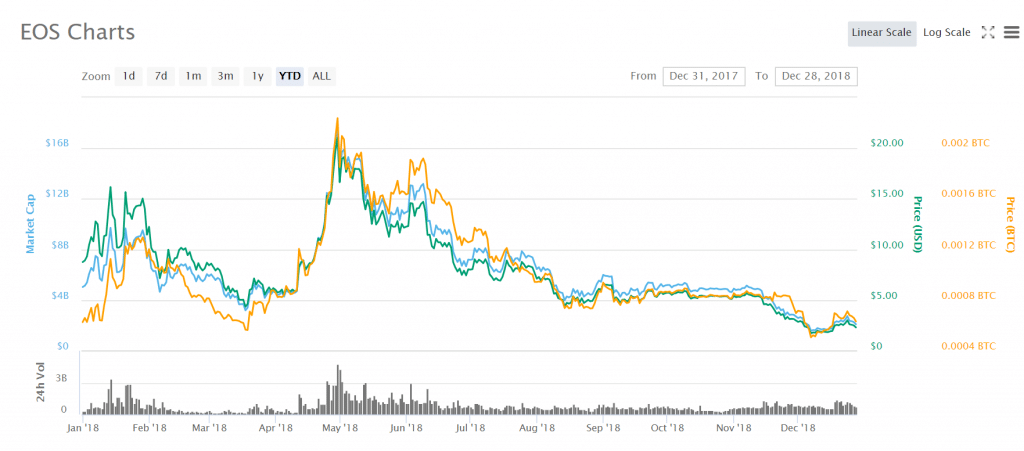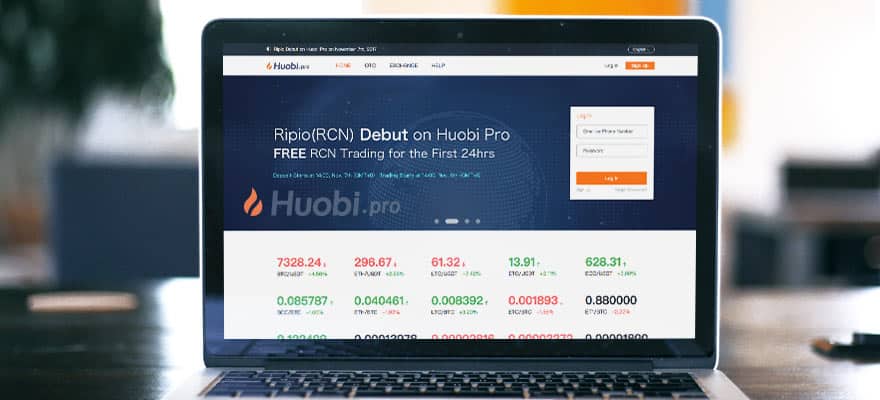Singapore-based cryptocurrency exchange Huobi is closing out 2018 with an addition to its offerings on the Derivatives Market–EOS contracts.
According to a recent announcement by the exchange, EOS will be adding Huobi DM on December 28. The addition comes roughly one month after the launch of Huobi DM, which was announced at the Crypotfrontiers conference in New York City on November 28. At the time, Huobi CEO Livio Weng said that “Sophisticated traders are increasingly looking for a broader range of tools. Integrating Huobi DM with Huobi Global allows us to better serve those user’s needs by offering them our full range of trading services in one convenient place.”
Huobi DM, our contract trading service, will add (EOS) on Friday. Users will be to place both long and short positions on EOS, allowing for , , and . For more information visit:
— Huobi Global (@HuobiGlobal)
The news of the addition of EOS to Huobi DM came paired with the announcement that Huobi DM’s trading volume had surpassed $1 billion on Tuesday, December 25th. Combined with the trading volume on Huobi Global, over $2 billion in trades were processed that day.
Currently, Huobi DM supports Bitcoin and Ethereum contracts that provide options for “arbitrage, speculation, and hedging.” At the time of writing, Huobi sat as the world’s third-largest cryptocurrency exchange by volume.
An Eventful Year for EOS
The addition of EOS onto Huobi DM is expected to have a positive effect on EOS’ valuation, which currently sits at roughly $2.32 with a total market capitalization of $2.1 billion.

The addition also marks the close of an eventful year for EOS. The coin migrated away from the Ethereum network and onto its own mainnet in June, and managed to surpass as the fourth-largest cryptocurrency in the world in terms of market cap in November (it has since fallen to the position of sixth-largest.) Its ICO, which finished earlier this year, is regarded as the largest in history.
Despite its rise as one of the top-ten cryptocurrencies in terms of market cap, EOS . The EOS network’s Delegated Proof of Stake algorithm has caused many in the cryptocurrency community to accuse the network of being too centralized. Additionally, Chinese cybersecurity firm Qihoo 360 published a report detailing how vulnerabilities in the EOS code could be exploited by hackers in early June. EOS responded to the report quickly by checking and repairing the vulnerabilities.





Be First to Comment